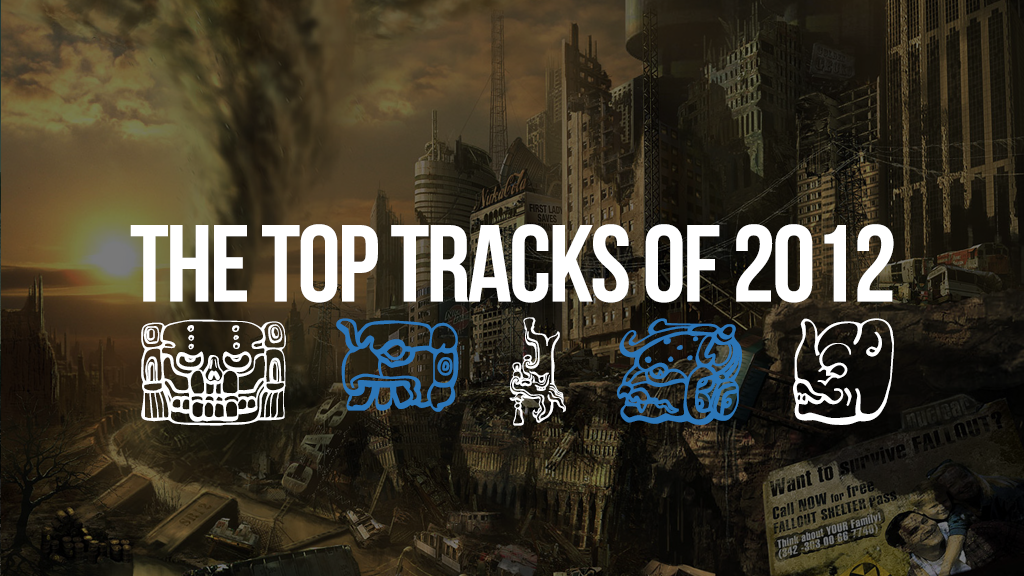
We’ve compiled as many of these tracks as are available into this Spotify playlist.
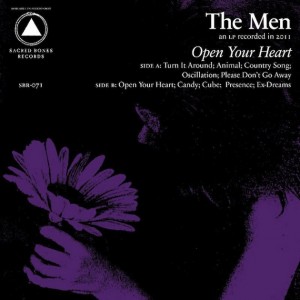
20.
The Men
“Open Your Heart”
[Sacred Bones]
The Men released one of the best rock albums of the year in Open Your Heart; a consistently winning combination of brutalizing guitars partnered with drunken heartfelt confessions – and the band perfected the sound on the album’s title track. The song takes the form of a plea from a hopeless man to a woman; “Open your heart to me, I’m lost, I’m found, I’m tugging at your sleeve” whines the first part of an agonizingly wrought-yet-catchy chorus, before following up with the earnest and heart-rending admission that “even if she says no, I won’t let go.” The song’s protagonist sounds alcohol-soaked and beaten – both emotionally and physically. It seems as though he’s going to pass out at any second and is being pulled along by the song’s propulsive guitars, which remain an unrelenting thrill from the explosive opening, through the breathless middle eight and take on new force as they jump back in for the song’s breakneck conclusion, expending their remaining energy in a final burst of excitement before collapsing in an abrupt but perfect ending. “Open Your Heart” manages to be a punk song that is both brash and heartfelt, remaining in your face through its whole runtime, getting plenty accomplished in its three and a half minutes, and ducking out just in time without at all overstaying its welcome.
– Rob Hakimian
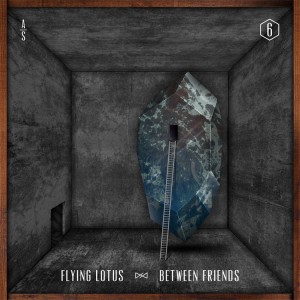
19.
Flying Lotus
“Between Friends”
(Feat. Earl Sweatshirt and Captain Murphy)
[Adult Swim Singles]
So unorthodox.
One of the most prolific tracks this year was this cut, premiered by Adult Swim. Revered electronic producer Flying Lotus lays down enigmatic, synth-driven beat, laying the ground for Odd Future ‘s Earl Sweatshirt to deliver his best verses since his return from Samoa. It’s not everyday your favorite rapper returns from exile in the South Pacific, teams up with the one of the most prolific electronic producers in the industry, and then name drops Humphrey Bogart.
But the real mystery remained in who this Captain Murphy character was. Months of speculation and rumors that Odd Future’s Tyler, the Creator was involved were fun, but after listening to Captain Murphy’s full Duality mixtape I think I’m convinced that Murphy is a better rapper than Tyler ever was. In retrospect it was silly to think that it was anyone but Flying Lotus himself. It’s too bad we’ll never know who the Captain is truly is.
P.S. Those who dig the outro beat should listen to Brainfeeder affiliate Azizi Gibson’s “Sweet Space.”
– Evan Kaloudis
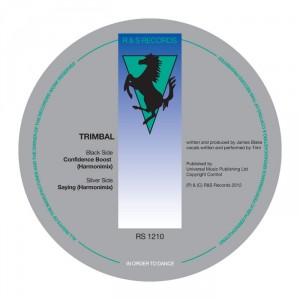
18.
Trimbal
“Confidence Boost (Harmonimix)”
[R&S]
After a breakthrough album and a couple of EPs in 2011, James Blake had a relatively quiet year, save for the release of a long anticipated collaboration with British MC Trim that dropped unexpectedly one evening in September. “Confidence Boost (Harmonimix)” delivered everything that the collaboration could have promised. Trim claws and gasps for air over the top of Blake’s weighty beat. Little blips collide the pitched up incarnation of Trim’s vocals in cosmic little bursts. It’s odd to hear Blake’s aesthetic given the runaround by a nimble rapper, but it’s tailored directly to Trim’s gasps, every booming bass hit breaks just at the moment when Trim gathers himself for his next heartbreaker of a line. Every line is delivered with the urgency that belies the bed of synthesized organ underneath. Drums clatter in Blake’s typically abstract way; he’s tailoring his sound to Trim’s insistence, but never at the expense of his usual impressionistic waves of organ sounds and swaths of burbling noise. It’s terse, tense, and nauseating in a way that Blake’s never really explored before, one can only hope that his future material makes similarly daring forays into the unknown.
– Colin Joyce
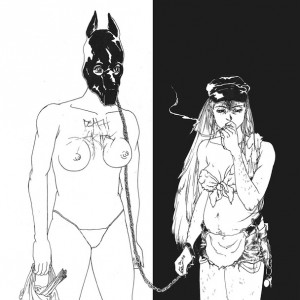
17.
Death Grips
“Hacker”
[Epic]
More than any other album this year, The Money Store grabs hold from its first note and never lets go. It’s a work of staggeringly precise, inescapable anguish — an album so fueled by darkness that getting through the whole thing can be a fairly draining experience. But like all great works constructed primarily to get under your skin, The Money Store uses an undeniable pop sensibility to draw its audience in even as it continues to abuse them. Underneath the fractured samples, schizophrenic drum patterns, and unrelenting bleakness of MC Ride’s lyrics, is an irresistibly catchy album.
Trent Reznor implemented the same strategy with 1994’s The Downward Spiral, and that record continues to be the closest thing The Money Store has to a sibling. Much like that album, all of the chaos and nihilism on display is tethered to something undeniably accessible — it’s Thriller filtered through an apocalyptic mindset, and this is no better evidenced than on The Money Store’s closing track, “Hacker.” It’s Death Grips’ equivalent to Nine Inch Nails’ “Closer” — a full-on pop song with a sing-along chorus that, in a different world, may have been the perfect candidate for radio play. Even as you’re bombarded with some of the most abrasive, unhinged electronic work ever committed to tape, the song’s off-kilter, larger-than-life chorus is impossible to resist. It’s the greatest weapon in the Death Grips arsenal — even as you’re repulsed by the violence on display, the band’s accessibility continues to draw you in. And on “Hacker,” that strange contrast between the beautiful and the grotesque is so razor-sharp, it’s scary.
– Cole Zercoe

16.
Japandroids
“The House That Heaven Built”
[Polyvinyl]
2012 represented a lot of things for a lot of people, but if there’s one thing I’ll remember it for, it was the year rock roared back. Which sounds cheesy and clichéd as hell, but it’s true! Indie music has come a long way in the past 20 years, from the slacker rock and twee pop of the 90’s, to the dance-punk fad of the early 2000’s, to the bedroom electronica that saturates our little indie sphere today. Sure, just about every genre manifests itself in one form or another in any given year, just because there’s so much stuff out there, but ass-kicking, capital-R Rock music hasn’t really been the focus like it used to be for some time.
That is, until this year, when indie received a giant slap in the face with a number of huge Rock releases. And no band personified this trend as well as Japandroids did with their fist-pumping anthem of all anthems, “The House That Heaven Built.” For lack of any better descriptors, it’s less of a song than it is a 5-minute adrenaline rush, but to speak of it in in terms of sound or structure would be doing it a disservice. What makes “The House That Heaven Built” great is that beyond just being music to raise hell to, it feels like an embodiment of those most primal, unabashed Rock ideals that have been in short supply for so long. It’s blissfully and refreshingly unself-conscious in a world dominated by self-consciousness, and for a song to be like that today and reach the heights “The House That Heaven Built” does without sounding completely disconnected from reality is one hell of an achievement. If you’ve heard “The House That Heaven Built” this year and it hasn’t made you want to raise hell and run red lights with your hands in the air, you’re probably still trying too hard.
– David Wolfson
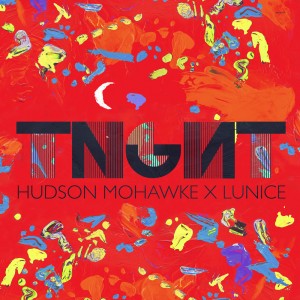
15.
TNGHT
“Higher Ground”
[Warp]
Hudson Mohawke and Lunice aren’t new to the production game. The cross-continent duo had been splicing electronic music genres for years before they paired up to form TNGHT, and “Higher Ground” was the track that reaped the benefits of their shared experience. TNGHT in general and “Higher Ground” in particular traffic in an obliterating more-is-more maximalism, the kind that regards a sledgehammer to the face as too subtle. The absolutely thunderous horn riff that forms the backbone of “Higher Ground” starts out as a single layer, by song’s end it sounds like there are fifty. And while a lone hook might seem like it would wear out its welcome, HudMo and Lunice stretch it, kick it, drop it, and throw it around in enough ways where anything more would seem unnecessary. “Higher Ground,” then is maximalist minimalism; it screams with joy a bare minimum of words to get its point across the dance floor.
– Chris Bosman
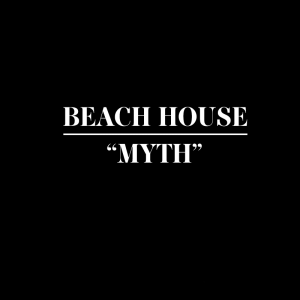
14.
Beach House
“Myth”
[Sub Pop]
Yeah, sure, Beach House’s 2010 album, Teen Dream, was a huge step forward for the band on multiple fronts — particularly in its amped-up production, replacing Devotion’s charming, slightly more homespun veneer with deep, rich timbres you could get lost in — but, when it came down to it, it earned its success the old-fashioned way: by having a fucking killer set of songs. In fact, one of the things I remember most clearly about listening to Teen Dream back in the day was how difficult it was to name my favorite track. At first it was “Zebra” of course, but then there was “Better Times,” “Used To Be,” “Take Care”… For an album by a band that’s so often annoyingly criticized for “doing one thing really well,” Teen Dream covered a lot of ground, and perhaps its greatest strength was in its variety of faces — it was a record that had just enough subtly different flavors that no one could eclipse the rest.
That’s why it was so jarring to hear “Myth” for the first time and know immediately that it was the best thing Beach House had ever done. Playing simultaneously like a summary of where the band has been and the culmination of their entire career, “Myth” is a song that no other band could’ve put out, not only in its writing, but in its performance — Victoria Legrand’s delivery of “Oh, let the ashes fly!” is one for the books. Perhaps Beach House are still a band with too much outstanding material to have a “best song,” but it’s safe to say that “Myth” is their defining moment.
– Ryan Stanley

13.
Tomas Barfod
“November Skies”
[Friends of Friends]
“November Skies” is all bluebird skies and wind in your hair electronics, and Nina Kinert’s alto feels like one of the most weightless sounds in existence for the track’s five and half minute runtime. The track bounces along with clear eyed abandon and Tomas Barfod peppers the vocalist’s surroundings with organic, reflective textures and ascending synth melodies B-lining for the titular skies. At first glance it might seem like a breezy, momentary pop song, but there’s a sadness and inevitability to its gait. Kinert spends the track taking stock of fleeting emotions, the broader scope of life, and how it all fits together. “November Skies” and the album on which it appears, Salton Sea, came out in the midst of summer and the track is a reminder not to let those warmer times pass quickly into transitory memory. The cut’s climax pushes the point wordlessly to the forefront, Kinert riding out of her thoughts in a sheer wave of cathartic, wordless reverie in one of the most immaculately executed pop crescendos of 2012.
– Will Ryan
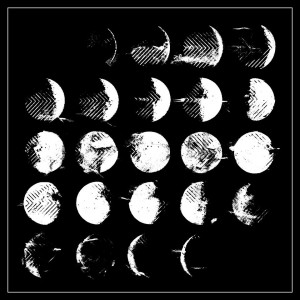
12.
Converge
“Aimless Arrow”
[Epitaph]
Anyone who’s followed Converge over the past decade or two knows that the band has a penchant for incredible album openers, so it shouldn’t really be to anyone’s surprise that “Aimless Arrow” gets All We Love We Leave Behind off on its best foot. You know what is surprising about it though? Jacob Bannon’s vocals. I mean, another thing everyone knows is that the guy knows how to unload with his delivery, but on “Aimless Arrow,” he manages to drop off one of his biggest loads yet, without letting loose one of his trademark gut-wrenching, throaty screams until the song’s almost over. Instead, his singing takes on an emo bent as he reels off lyrics about living a reckless lifestyle at the cost of hurting those that love him. It’s like hearing Guy Picciotto on steroids, or at least with a lot more muscle in his delivery. “No one will ever guide me/ As I sail through the air/ Now I just bring sadness/ In those who choose to care,” he cries over winding, serpentine metal riffage and machine-gun drumming that eat up the rest of the space in the track. The bass rises in the mix at the most opportune moments, adding even more weight to the attack, and the song ends on a darker turn with slicing guitar chords, backing vocals, and Bannon descending into more familiar territory with an unhinged finish. It’s been 22 years since Converge got together and with “Aimless Arrow,” the band remains as brilliant and inventive as ever. It’s good to have these guys still around.
– David Wolfson

11.
Chromatics
“Lady”
[Italians Do It Better]
It’s been kicking around in various forms from as far back as 2008, but Chromatics’ watershed release, Kill For Love, brought about “Lady” in its shiny final version. In its purest sense, “Lady” functions as a sort of summation of everything Chromatics has done well since the overhaul brought about by the addition of Italians Do It Better label head and producer extraordinaire Johnny Jewel. It begins the open space (and open road) of 2007’s Night Drive before folding in on itself and falling in line with the synth heavy bump that made up the core of Kill For Love’s poppier moments. Centering on Ruth Radelet’s absolutely heavenly vocal and Jewel’s booming synth bass, the track uses its five minute runtime to craft a technicolor soundtrack for nightclubs that never existed and to pad scores for films that were never meant to be. Johnny Jewel and co. went long on Kill For Love, inadvertently trying the patience of some of his listeners, but much of the first half of the record proved Chromatics’ intense pop focus. “Lady” distills 80s indebted smears of synth sounds and cooed vocals. It’s Kate-Bush-does-splatter-paint and New Order in neon. It’s, well, everything you’ve come to expect from Chromatics, but better.
– Colin Joyce

